Strategic Management Report: Ethical Manufacturing and Supply Chain
VerifiedAdded on 2023/05/30
|8
|864
|383
Report
AI Summary
This report analyzes the contemporary strategic management challenges faced by clothing manufacturing corporations, particularly in the context of ethical practices and sustainable supply chain management. The report highlights the pressure on US-based companies to avoid outsourcing to developing nations, emphasizing the importance of addressing issues like employment laws, sweatshop production, and unsafe working conditions. It examines the evolving customer perspectives, with a growing preference for ethically produced goods, especially among millennials. The implementation of Sustainable Supply Chain Management (SSCM) policies is presented as a key strategy for avoiding unethical practices, with guidelines from organizations like the ILO and United Nations. The report also discusses the increasing scrutiny from governments in developing nations, which are imposing stricter laws and penalties on companies that engage in unethical practices. The evaluation of several sources, including studies by Ma, Lee & Goerlitz (2016), Islam, Haque, Dissanayake, Leung & Handley (2015), Khurana & Ricchetti (2016), and others, supports the report's arguments. The report emphasizes the importance of mandatory disclosures, transparency in operations, and the adoption of Corporate Social Responsibility (CSR) structures to resolve the issues raised in the case study.
1 out of 8

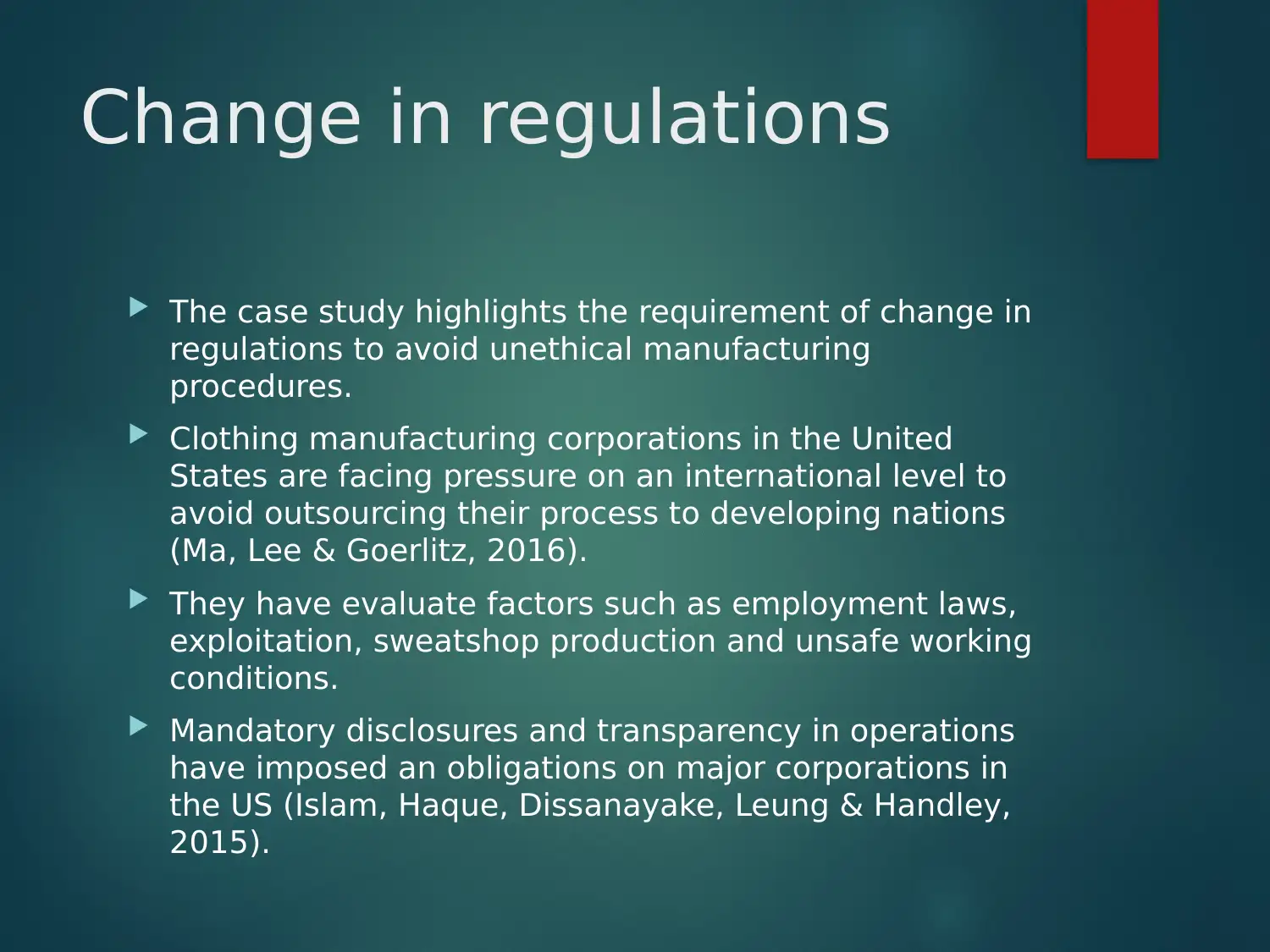
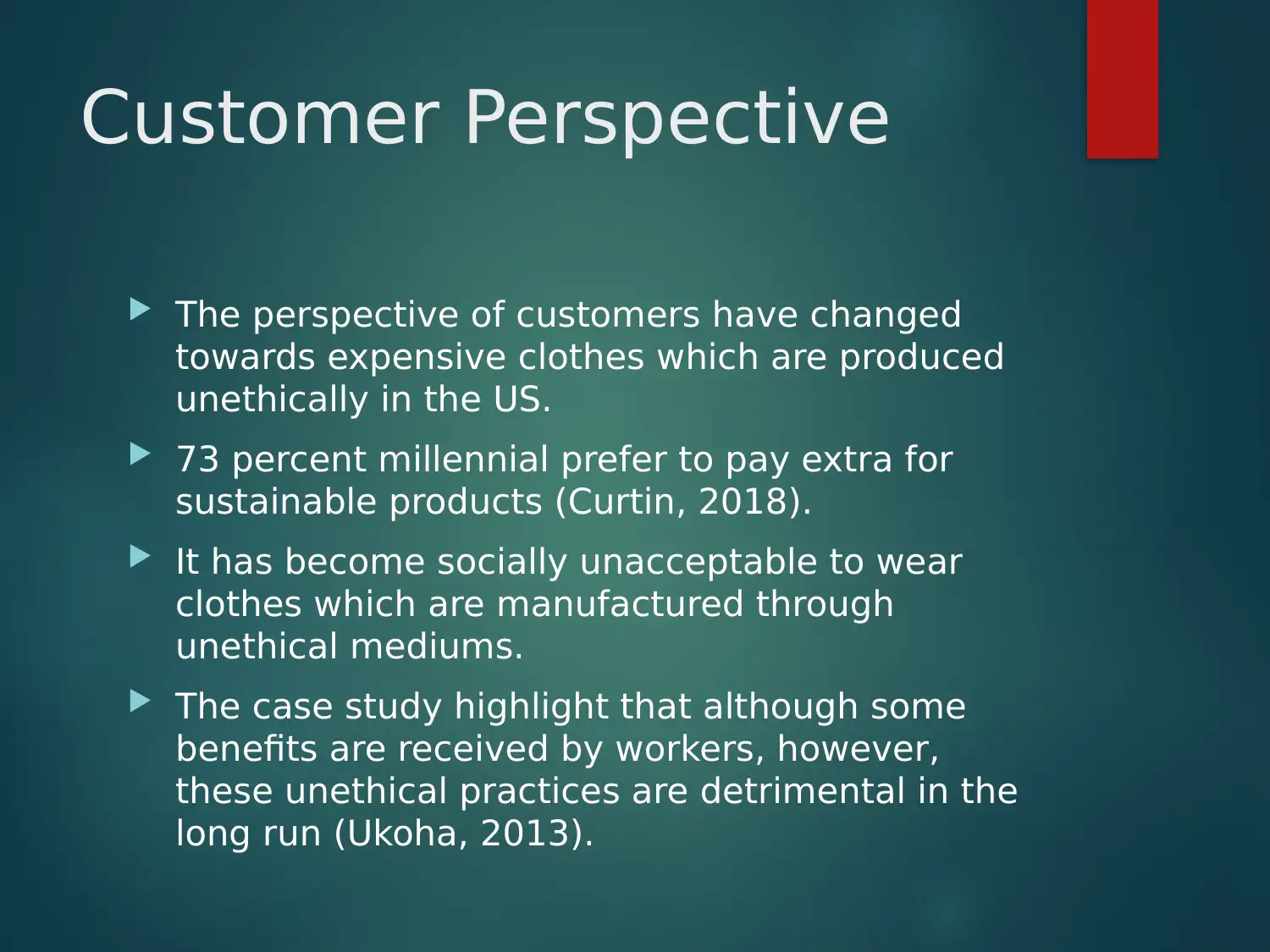

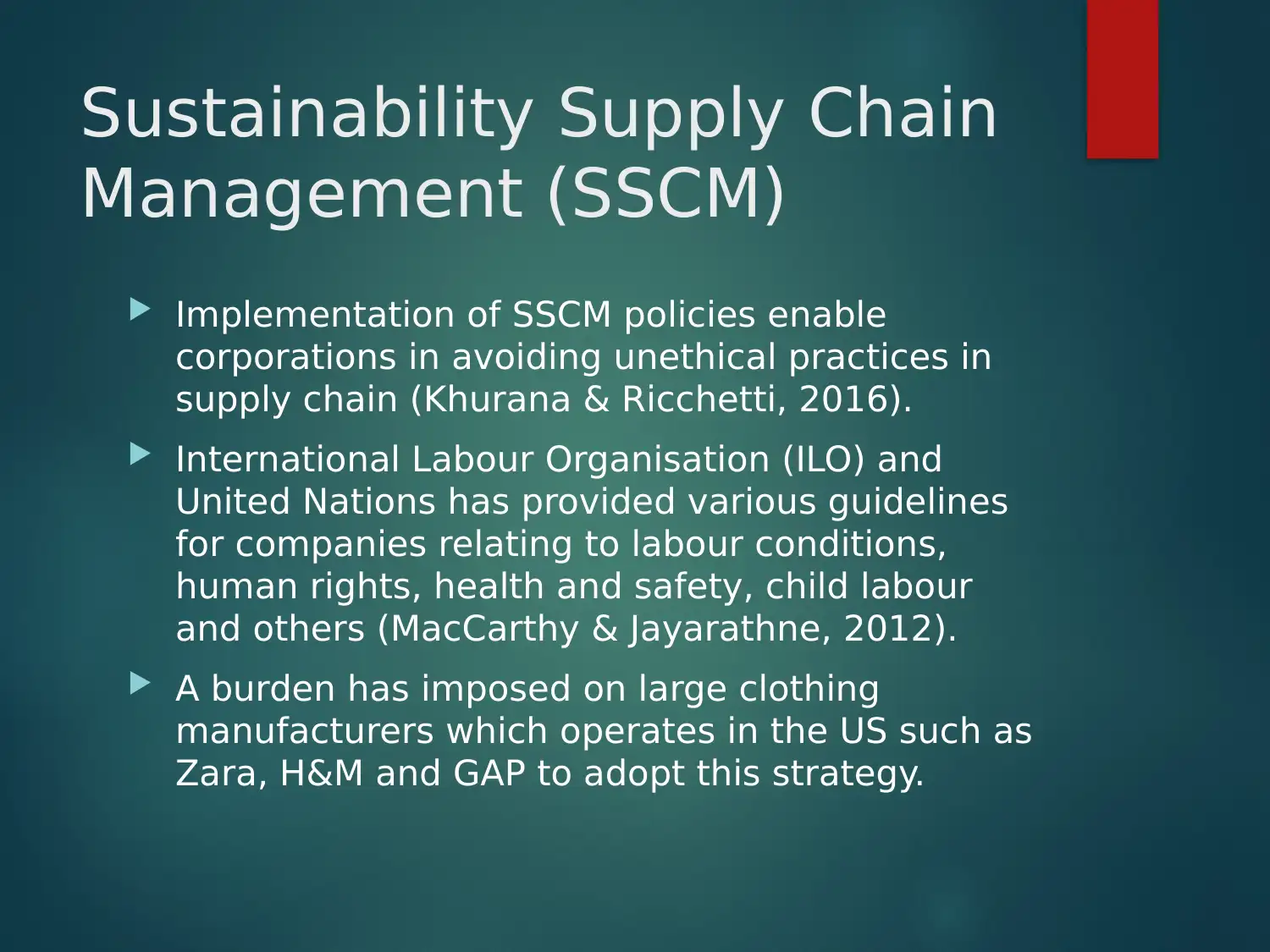
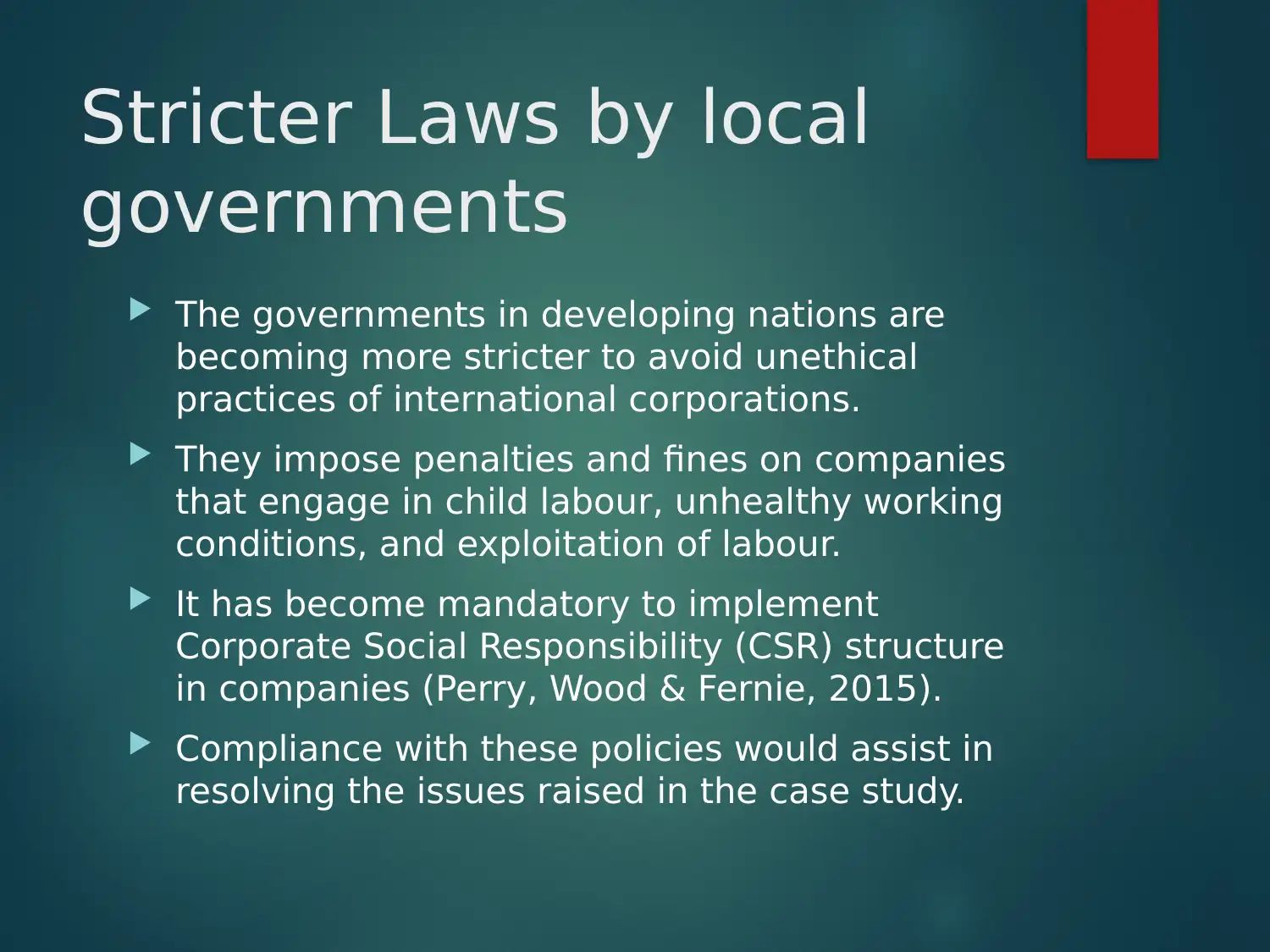
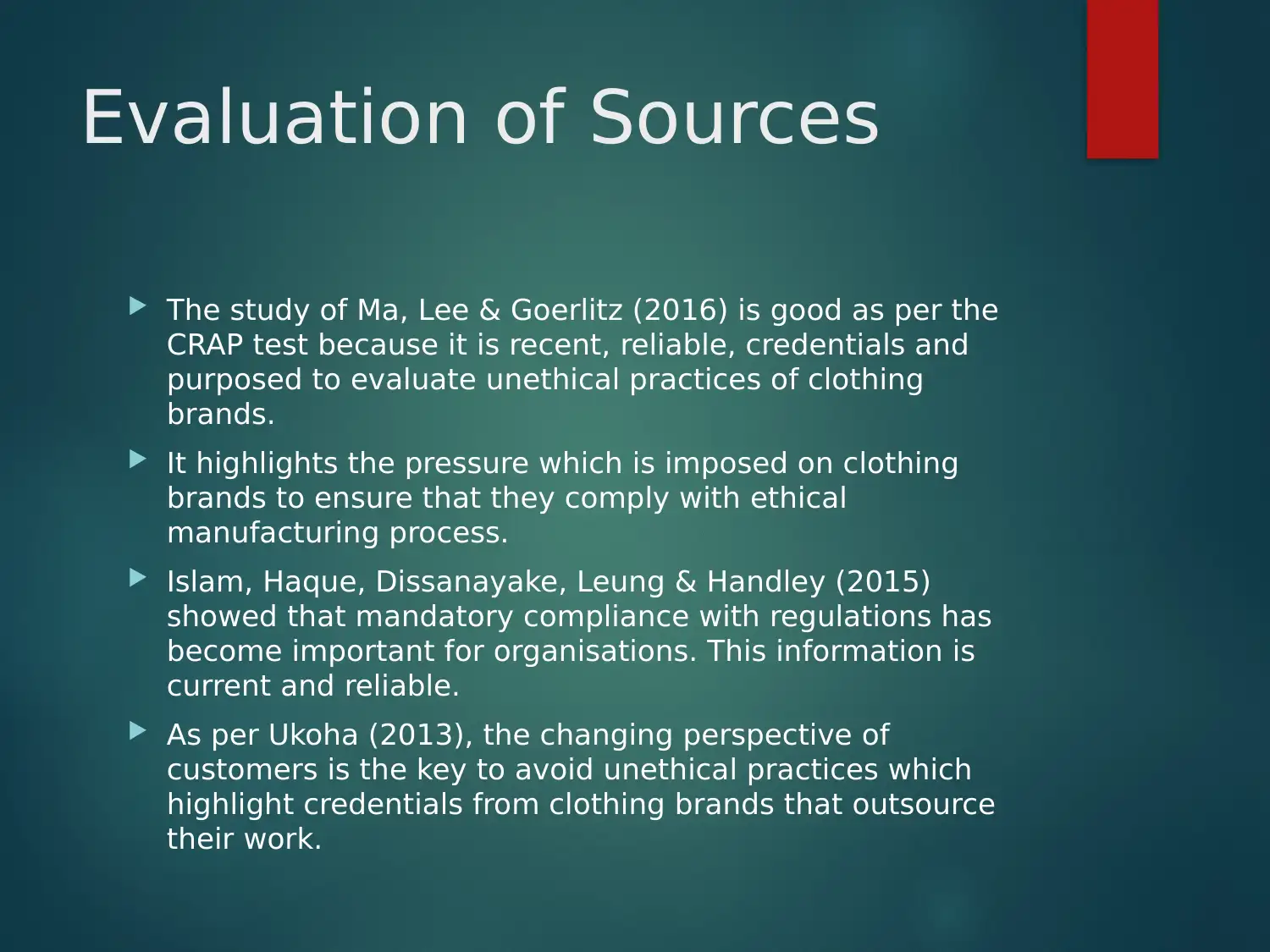
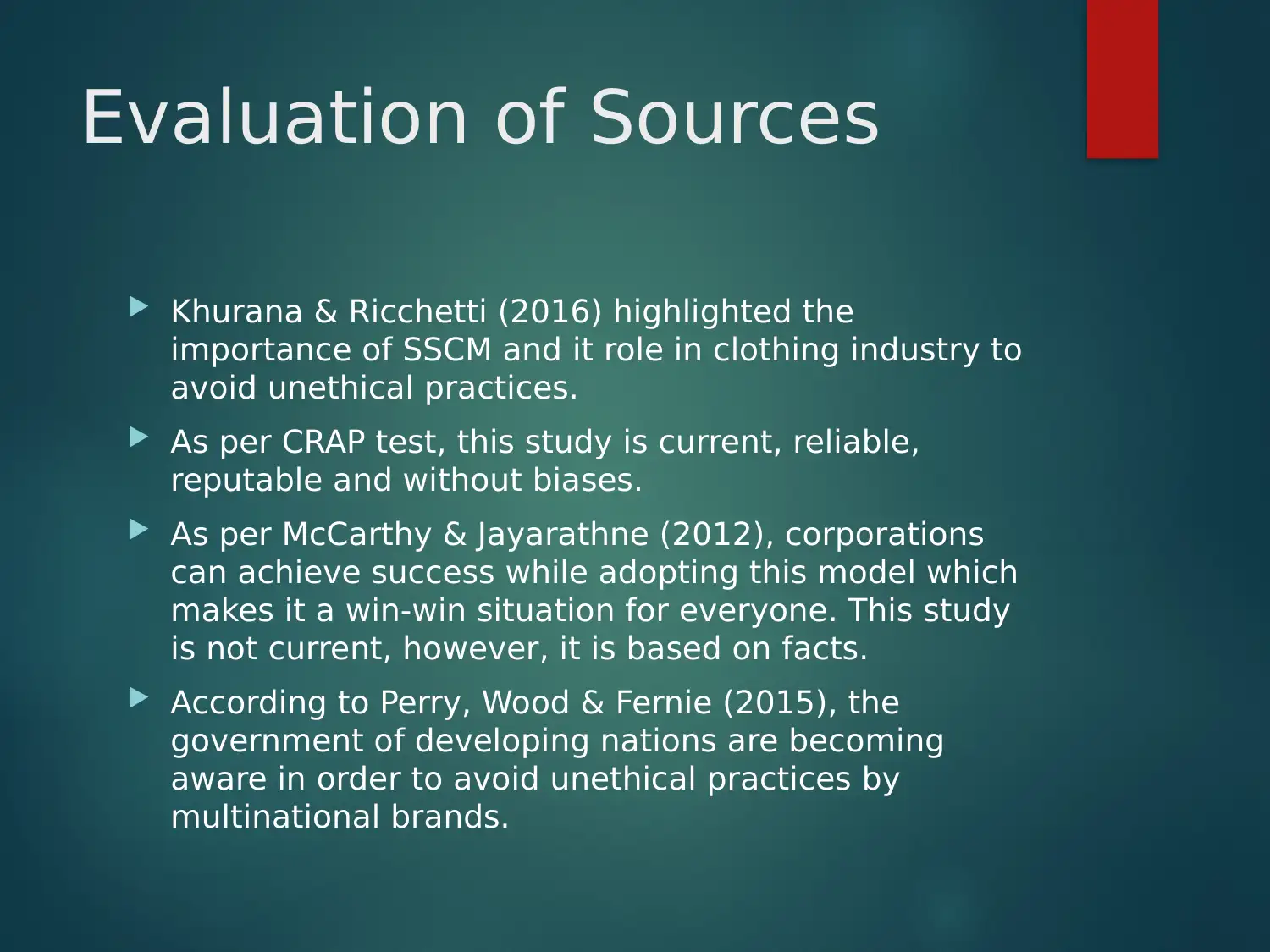
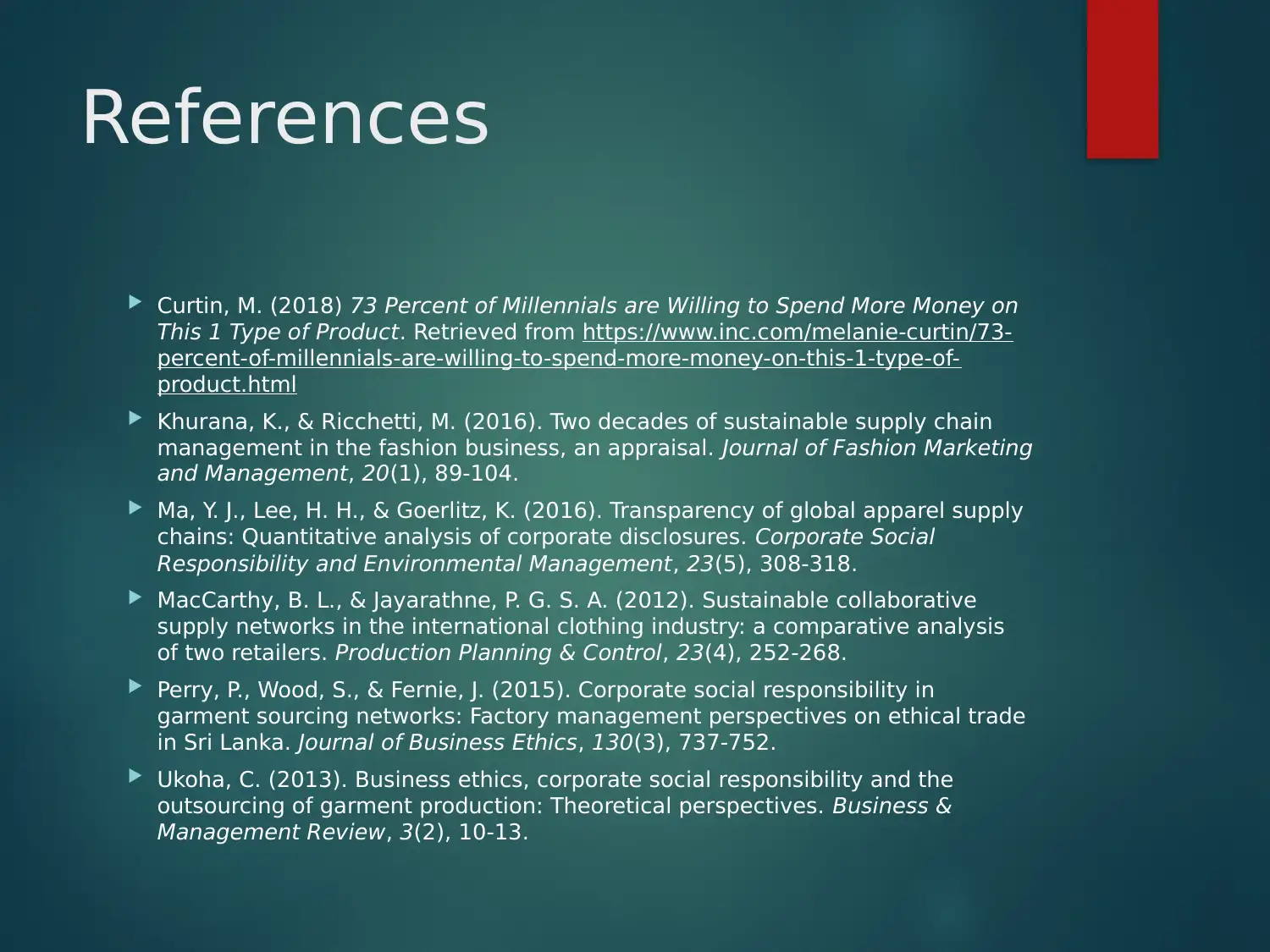

![[object Object]](/_next/static/media/star-bottom.7253800d.svg)